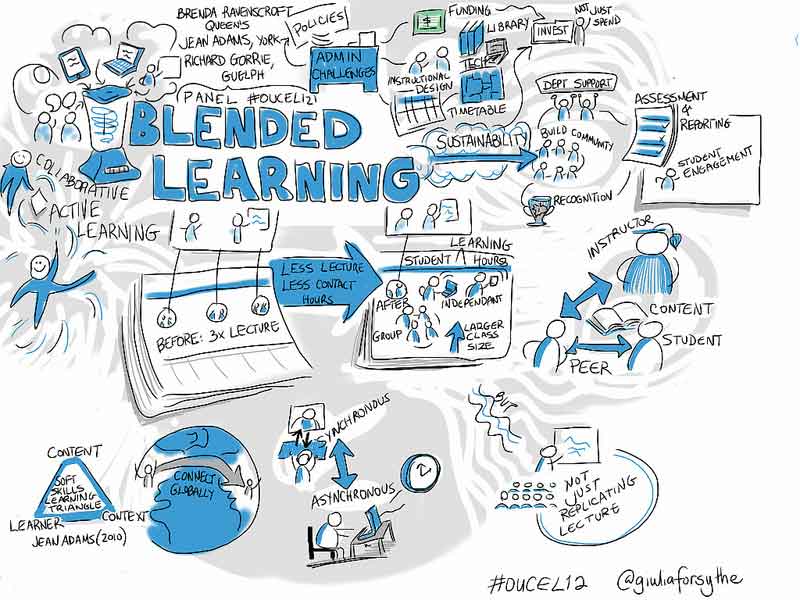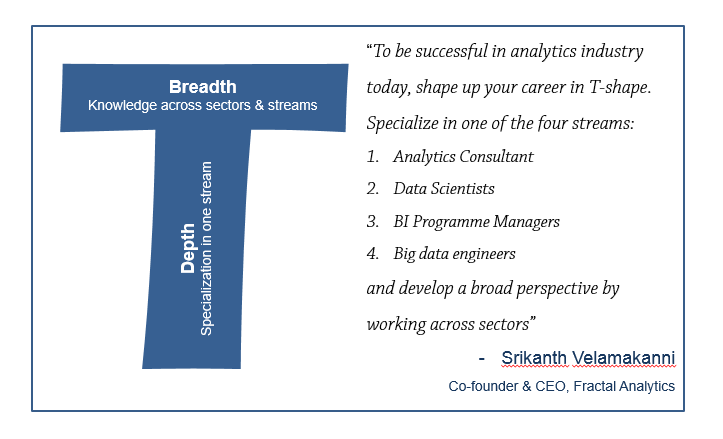Data science has become one of the most dynamic field. Every alternate month I hear about a start up coming up with next gen tools and products. Cloudera, Neo4j, MongoDB, Ayasdi are some of the companies, which are showing us this exciting future.
With this pace of development, your learning strategy needs to change accordingly. You can no longer learn a tool and be good for 2 – 3 years. You need to learn continuously.
I lay out 8 rules of new age analytics learning in this post. If you are serious about your future in analytics, you should keep them in your heart:
Rule 1: Open Source tools are in
Open source tools are growing in their presence by the day, for the right reasons. They are cost effective, have big communities to support and have faster pace of development. They are also the tools available to a scientist (or a freelancer) working on his own.
You can read a more detailed comparison of these tools against SAS here. Except for people just entering analytics industry (with primary concern as jobs), learning R (or Python) is almost mandatory to future-proof yourself.
So, if you want a long term career in analytics, learn one of these now!
Rule 2: Democratization and free trials of tools will become the norm
Free trials of tools in individual capacity will become the norm (if it is not already). What I mean is, that more and more companies will offer a basic version of their tools for free. For example, Qlikview offers personal edition as a free download, but you need to buy licenses if you want to share you dashboards. Big query (from Google) offers querying till a particular data size for free.
How does this matter?
Well, you get access to any tool you want as a starter. You can test out tools before purchasing / deploying them. Also, you can accelerate your learning through downloading and experimenting through these tools.
Rule 3: Deep learning in at least one subject will propel your career
Especially so, in early part of your career. In order to distinguish yourself, you will need specialization in at least one area. If you are a Business Intelligence professional, you need to understand the entire spectrum of tools available, their pros and cons. Same with Big data experts and data scientists. The pace of change doesn’t allow you to specialize in all these subjects.
You are free to pick what you prefer, as each of the specialization offer good career aspects.
Rule 4: However, for leadership positions, you will need broader perspective
Leaders will be expected to know what is happening across spectrum and how can that benefit the organizations. So, at some point, when you have deep knowledge in one of the subject areas, you need to pay equal attention to other areas (at a higher level though).
Or as Srikanth Velamakkani, CEO, Fractal Analytics puts it:
Rule 5: Outstanding visualizations and storytelling will differentiate best analysts from the rest
With data size increasing every second, you can no longer rely on bar-charts and pie-charts to tell your stories. New creative visualizations help deliver stories effectively and efficiently. Be it infographics, graph representations of networks or geo-spatial heat maps – all of these are far better to make an impact compared to a bar graph / table narrating the same.
Rule 6: Man machine co-ordination will gain in importance
Machine learning is gaining importance due to strong fundamental reasons. Be it Google driverless cars, or your smartphones trying to understand your needs or a sensor on your wrist to monitor your health regularly, all of these require man machine co-ordination. I think the career opportunities here can almost be divided in 2 categories:
- Data collection from various sensors and machines
- Analyzing stream of data to come up with insights and personalized experiences
Rule 7: Data Science competitions are opportunities to learn and showcase your talent
I love these competitions and hope that you do too. Sadly, I don’t get as much time for these as I would want. But these are ideal platforms to learn along side your peer. Look at the kind of discussions happening on various competitions on Kaggle and you will understand what I am talking about, You learn immensely through these competitions.
As a side benefit, they can become your hiring platforms.
Rule 8: Last but not the least, learn continuously
This goes without saying! The more you learn, the better it is. What is important is to learn regularly and continuously. Be it courses on Coursera, Youtube tutorials, blogs or iPython notebooks on github, just spend time to learn on a regular basis.
Each of these rules is something I believe in. Internalizing them will help you become clearer on your learning journey. What are your thoughts on these? Do you have any other rules / perspective to add? Kindly do so, through the comments below.
If you like what you just read & want to continue your analytics learning, subscribe to our emails, follow us on twitter or like our facebook page.
photo credit: giulia.forsythe via photopin cc






